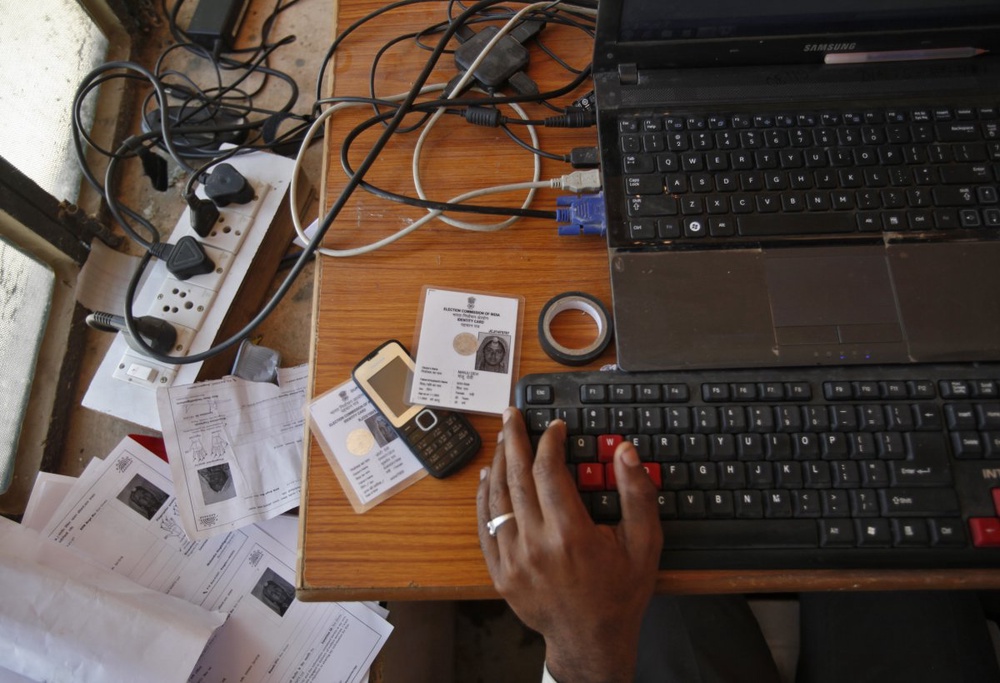
Web giant Google and other Internet companies say they oppose creating Brazil-based databases of local customer information, proposed by a Brazilian government determined to crack down on espionage, AFP reports. Google says in principle it supports proposed legislation enshrining an Internet civil rights framework, dubbed Marco Civil de Internet in Brazil, the company told AFP. But a proposed amendment to ensure that all Brazil-based clients have their data stored on Brazil-based servers is proving controversial. "Google has long supported Marco Civil as an important piece of legislation that will protect freedom of expression and the ability of the Internet to generate economic growth," a Google statement to AFP read. But it added: "The proposed amendment to Marco Civil requiring Internet companies to store Brazilian user data in Brazil risks denying Brazilian users access to great services that are provided by US and other international companies." Brazilian President Dilma Rousseff has urged her country's Congress to pass the measure as a matter of urgency, having in the past month rebuked Washington for eavesdropping on Brazilian communications, including some from her own office and also from oil giant Petrobras. A total of 45 associations representing a swath of Internet giants including Google, Facebook, Amazon and Apple this week wrote to the Brazilian Congress to state their opposition to the proposal that data from Brazil-based clients must be stored in the Latin American country. The companies believe the requirement may ultimately prove prejudicial to web-based commerce and hence to users of such services. And they believe that a government demand that "data centers" be created across Brazil could not just load on extra costs but potentially lessen web security for clients -- the opposite of what the Brazilian bill hopes to achieve. Google stated Friday that "Marco Civil was built in a democratic fashion with the goal of securing an open, global and innovative Internet. "Society should not accept any rushed attempts to change these core principles of the bill. "Security has nothing to do with the localization of data," Jorge Sukarie, president of the Brazilian Association of Software Firms (ABES), told AFP. ABES is a signatory of the letter urging the Brazilian Congress to rethink. Further signatories to the letter include the US Council for International Business and international chambers of commerce from countries including the United States, Chile, France, Spain, the United Kingdom and Mexico. According to Sukarie, the goal should be to "incentivize people and firms to develop new businesses which use technology to boost productivity and competitiveness," rather than infringe users' options by measures such as dictating where their data is stored. He warned that additional costs would arise for Brazilian consumers if the country's technological infrastructure proved inadequate. Brazilian lawmakers must vote on whether to push through the Marco Civil bill before Monday and then send it up for debate in the senate or else the issue will block the lower chamber's agenda.





Web giant Google and other Internet companies say they oppose creating Brazil-based databases of local customer information, proposed by a Brazilian government determined to crack down on espionage, AFP reports.
Google says in principle it supports proposed legislation enshrining an Internet civil rights framework, dubbed Marco Civil de Internet in Brazil, the company told AFP.
But a proposed amendment to ensure that all Brazil-based clients have their data stored on Brazil-based servers is proving controversial.
"Google has long supported Marco Civil as an important piece of legislation that will protect freedom of expression and the ability of the Internet to generate economic growth," a Google statement to AFP read.
But it added: "The proposed amendment to Marco Civil requiring Internet companies to store Brazilian user data in Brazil risks denying Brazilian users access to great services that are provided by US and other international companies."
Brazilian President Dilma Rousseff has urged her country's Congress to pass the measure as a matter of urgency, having in the past month rebuked Washington for eavesdropping on Brazilian communications, including some from her own office and also from oil giant Petrobras.
A total of 45 associations representing a swath of Internet giants including Google, Facebook, Amazon and Apple this week wrote to the Brazilian Congress to state their opposition to the proposal that data from Brazil-based clients must be stored in the Latin American country.
The companies believe the requirement may ultimately prove prejudicial to web-based commerce and hence to users of such services.
And they believe that a government demand that "data centers" be created across Brazil could not just load on extra costs but potentially lessen web security for clients -- the opposite of what the Brazilian bill hopes to achieve.
Google stated Friday that "Marco Civil was built in a democratic fashion with the goal of securing an open, global and innovative Internet.
"Society should not accept any rushed attempts to change these core principles of the bill.
"Security has nothing to do with the localization of data," Jorge Sukarie, president of the Brazilian Association of Software Firms (ABES), told AFP. ABES is a signatory of the letter urging the Brazilian Congress to rethink.
Further signatories to the letter include the US Council for International Business and international chambers of commerce from countries including the United States, Chile, France, Spain, the United Kingdom and Mexico.
According to Sukarie, the goal should be to "incentivize people and firms to develop new businesses which use technology to boost productivity and competitiveness," rather than infringe users' options by measures such as dictating where their data is stored.
He warned that additional costs would arise for Brazilian consumers if the country's technological infrastructure proved inadequate.
Brazilian lawmakers must vote on whether to push through the Marco Civil bill before Monday and then send it up for debate in the senate or else the issue will block the lower chamber's agenda.


 +7 (777) 001 44 99
+7 (777) 001 44 99















































